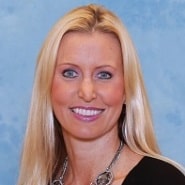
Sarah Richardson, VP of IT Change Management, Optum
Coaching is a mainstay in industries as varied as sports and the opera. Although coaching may be less common in the healthcare technology sector, it is an effective strategy for helping team members be their personal and professional best.
In my role as vice president of IT change leadership for Optum, I have the opportunity to coach new IT team members about the mission, vision, values and purpose driving what they do. It is important for them to understand that their work affects the experience of patients and physicians in our clinics, and to realize the consequences when systems don’t function as intended. They can gain an appreciation for how they contribute to outcomes and take ownership for the support they provide.
As a certified career coach, I also work one on one with team members as well as my personal clients. Not everyone is a good candidate for coaching. They have to want to be coached, to explore within themselves, to be reflective and to learn. They need to be open to change and willing to put in the mental energy it takes to test themselves. They may be at the cusp of advancement within their organization, or they may be a senior leader committed to thinking differently. My role as their career coach is to ask guiding questions, listen, build a connection and facilitate their growth. It is a humbling experience on both sides.
How does that inner journey translate to healthcare technology? I recently participated in a course where I felt unprepared and not up to the task. I was frank with the attendees and encouraged them to critique me as we went along. Their participation was phenomenal; the feedback received was extremely helpful. Digital health leaders may be reluctant to be vulnerable, to admit they don’t have all of the answers. Yet, a willingness to be humble, to be receptive to new and challenging ideas, may pave the way for those elusive answers.
This October I will lead a six-week online course — Coaching for Excellence — through CHIME. Those who attend will be coached on how to be coaches. This is a new initiative, with a format that allows participants to create peer coaching strategies, discuss their experiences and grow in a safe environment. Learners who complete all the requirements of the program will earn a certificate that marks their advancement in healthcare IT coaching.
Sarah Richardson is a certified career coach, vice president of IT change leadership for Optum and a member of the College of Healthcare Information Management Executives (CHIME) Board of Trustees. More information about Coaching for Excellence is available here.


Share Your Thoughts
You must be logged in to post a comment.